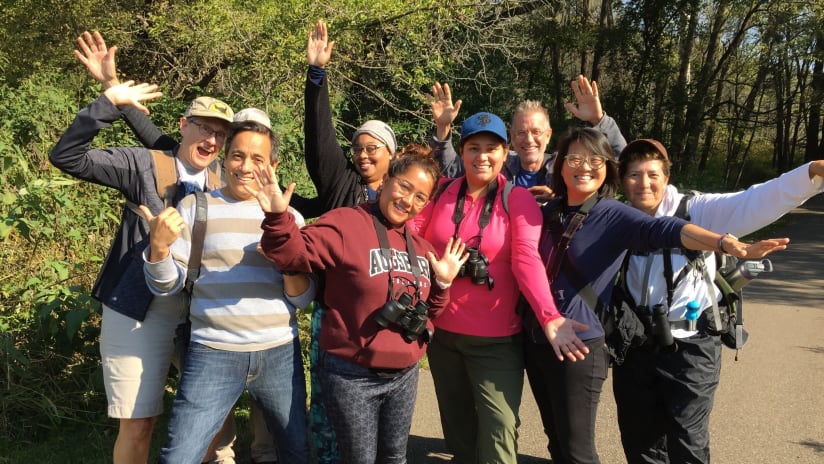We could all stand to learn a little more, especially from each other. The act of growing a community – a true community that can rely on one another – is made through collective understanding and empathy. Voices for Racial Justice is an organization that believes in a united community and works within the avenues of policy, research, and education to promote the healing of Black, Indigenous, and communities of color.
Following a recent Lunch & Learn event in which the organization’s Executive Co-Director of Operations, Monica Bryand, and Policy Organizer, Nicole Donoso, spoke to the Minnesota United front office staff, we had a chance to sit down with Ms. Bryand and Donoso to learn more about the inspiring mission of Voices for Racial Justice and all of the incredible work they are doing throughout our community.
VRJ was founded in 1993, and since then, has continued to expand its positive impact in the Twin Cities. “We envision a society where there’s no racism. We envision a society where everyone can contribute and live in a harmonious way. And in order to do that, we need to acknowledge the disparities currently happening,” said Nicole Donoso. “Acknowledging is understanding that we need to change the way we see our society. We need to build a policy system that includes us, BIPOC communities, because as of right now, our current system is built and designed in a way to continue perpetuating disparities and the privilege of only a few.”
Monica Bryand describes VRJ as “intermediaries.” They are an organization that works through other groups, uplifting existing voices to create a bigger impact. “What we always try to say is we are only as strong as the organizations that we work with,” said Bryand. “We want to lift up their story and support them to be stronger.”
A perfect example of this is the Democracy Tool Kits created in 2022. VRJ researched voter disparity amongst BIPOC communities and put together some strategies that would help other groups in the area that were already working to create more voter turnout. “The BIPOC communities in our state have historically been excluded, but they are important in our society. We need BIPOC communities. We are part of our society, right?” said Donoso. “So we need to uplift their stories and narratives and value them. For years communities of color have been excluded, but it's time to acknowledge that they are important. They are a part of our democracy and they should have positions of power and voices.”
The work on the Democracy Tool Kit led to another great project that VRJ is working on – the Racial Equity Impact Assessment. REIA is meant to be a tool used in policy decisions. Leaders in the community will ask the five questions on the kit and decide if their idea will help racial equity or worsen the gap before implementing a new policy. 1. Who is most impacted? 2. What disparity is being addressed? 3. How would the proposed policy change the situation? 4. Are there potential negative impacts? 5. Can the policy be sustainably successful?
It is clear that Voices for Racial Justice is doing amazing work for racial equity in Minnesota, so how can other people help the mission? Well, a big part of it is education and understanding – read stories and research studies from people of color. The more there is collective empathy, the closer the goal of a society without racism comes to light. The VRJ Newsletter is a great place to start with this. “Sign up for our newsletter because we share information on relevant issues, such as free lunch for all kids in Minnesota,” said Bryand. “We try to educate on those kinds of things, and not just from what we're doing, but especially the organizations that are on the ground doing this work.”
One big thing to understand at the base of this learning journey is that there are different realities being lived parallel to your own. “People should think about their own privilege and how their own privilege can support other people. Be open-minded to other realities of people that live in the same state,” said Donoso. “And importantly, think about this from a position of deep love and understanding and not a position of a savior. It’s I’m here with you, to struggle with you, to hear you, and uplift your voice.”
Voices for Racial Justice is an inspiring organization. For those in positions of privilege, it is all too easy to be blind to the struggles of our neighbors, coworkers, and friends. VRJ’s great work should be a reminder that no one is exempt from the system. The fight for an equitable world is not solely in the hands of the oppressed, and it is the duty of everyone, especially the more privileged, to stand with and help uplift everyone in the world’s communities.




